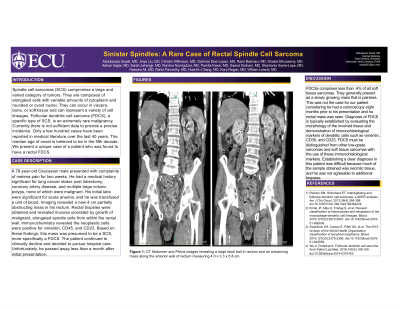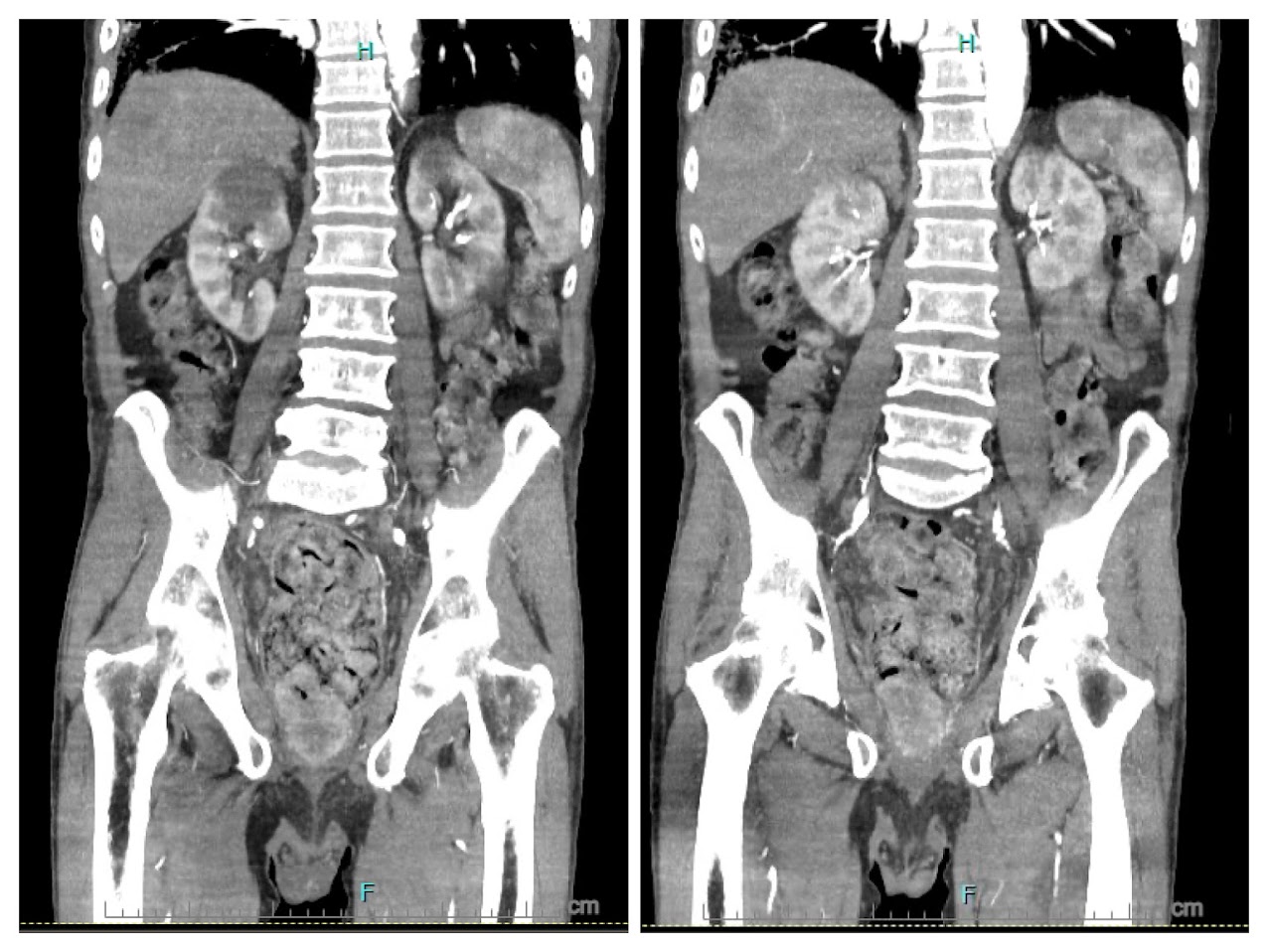Sunday Poster Session
Category: Colon
P0458 - Sinister Spindles: A Rare Case of Rectal Spindle Cell Sarcoma

- AS
Abddulazeez Swaiti, MD
East Carolina University Medical Center
Greenville, NC
Presenting Author(s)
1East Carolina University Medical Center, Greenville, NC; 2ECU Department of Internal Medicine, Greenville, NC; 3East Carolina Gastroenterology, Greenville, NC; 4MD, Greenville, NC
Introduction:
Spindle cell sarcomas (SCS) compromise a large and varied category of tumors. They are composed of elongated cells with variable amounts of cytoplasm and rounded or ovoid nuclei. They can occur in viscera, bone, or soft tissue and can represent a variety of cell lineages. Follicular dendritic cell sarcoma (FDCS), a specific type of SCS, is an extremely rare malignancy. Currently there is not sufficient data to provide a precise incidence. Only a few hundred cases have been reported in medical literature over the last 40 years. The median age of onset is believed to be in the fifth decade. We present a unique case of a patient who was found to have a rectal FDCS.
Case Description/Methods:
A 78-year-old Caucasian male presented with complaints of melena pain for two weeks. He had a medical history significant for lung cancer status post lobectomy, coronary artery disease, and multiple large colonic polyps, none of which were malignant. His initial labs were significant for acute anemia, and he was transfused a unit of blood. Imaging revealed a new 4 cm partially obstructing mass in his rectum. Rectal biopsies were obtained and revealed mucosa ulcerated by growth of malignant, elongated spindle cells from within the rectal wall. Immunochemistry revealed the neoplastic cells were positive for vimentin, CD45, and CD23. Based on these findings, this mass was presumed to be a SCS, more specifically a FDCS. The patient continued to clinically decline and decided to pursue hospice care. Unfortunately, he passed away less than a month after initial presentation.
Discussion:
FDCSs comprises less than .4% of all soft tissue sarcomas. They generally present as a slowly growing mass that is painless. This was not the case for our patient considering he had a colonoscopy eight months prior to his presentation and no rectal mass was seen. Diagnosis of FDCS is typically established by evaluating the morphology of the involved tissue and demonstration of immunohistological markers of dendritic cells such as vimentin, CD35, and CD23. FDCS must be distinguished from other low-grade sarcomas and soft tissue sarcomas with the use of these immunohistological markers. Establishing a clear diagnosis in this patient was difficult because much of the sample obtained was necrotic tissue, and he was not agreeable to additional biopsies. This case reinforces the importance of strict adherence to cancer screening recommendations of high-risk patients regardless of whether previous polyps were found to be neoplastic or not.

Disclosures:
Abdulazeez Swaiti, MD1, Jinye Liu, DO1, Christin Wilkinson, MD1, Clarimar Diaz-Lopez, MD1, Rami Basmaci, MD1, Khaled Elhusseiny, MD1, Adnan Humam Hajjar, MD1, Sarah Jahangir, MD1, Romina Nomigolzar, MD1, Parnita Kesar, MD1, Saeed S. Graham, MD2, Stephanie Ibarra Lepe, MD1, Hassam Ali, MD3, Rahul Pamarthy, MD1, Huai-En Chang, MD1, Kara Regan, MD4, William Leland, MD1. P0458 - Sinister Spindles: A Rare Case of Rectal Spindle Cell Sarcoma, ACG 2025 Annual Scientific Meeting Abstracts. Phoenix, AZ: American College of Gastroenterology.
